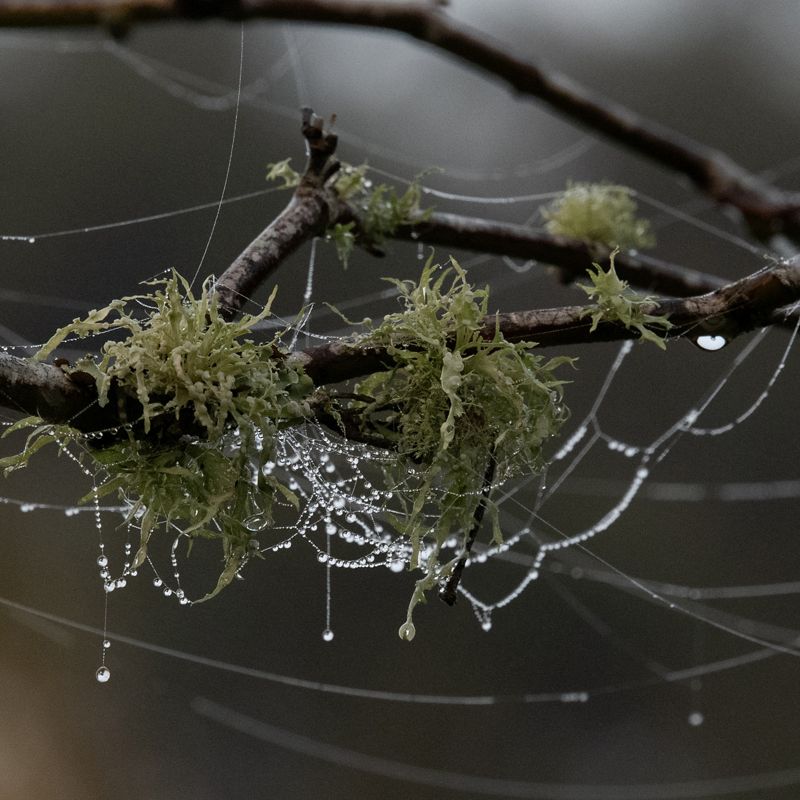
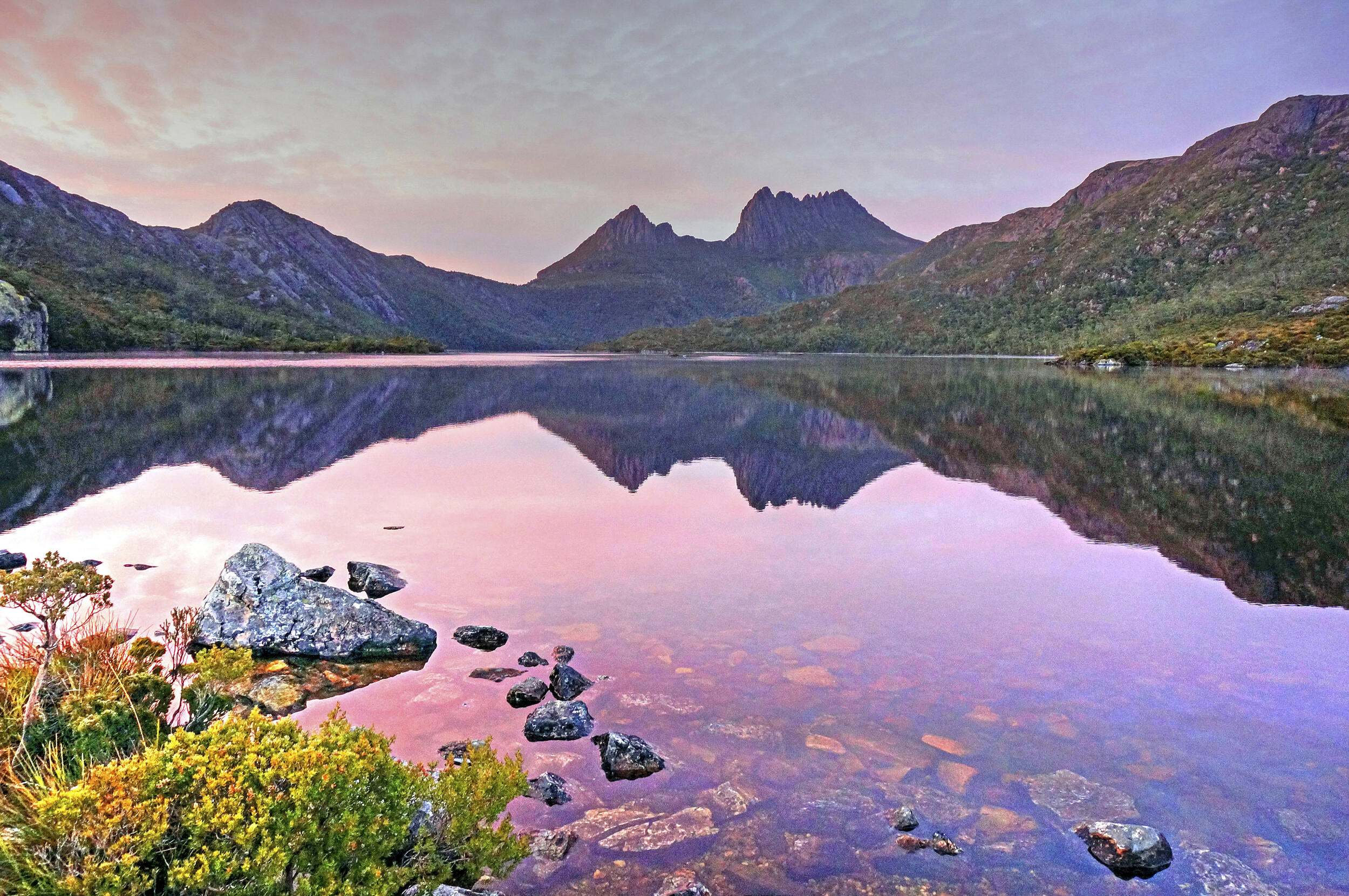
The Barbara Thomas Fellowship
Supporting knowledge sharing to accelerate conservation progress
The Barbara Thomas Fellowships for Excellence in Conservation were established in 2006 to support cross-organisational knowledge sharing and growth to improve Australia’s conservation efforts. The most recent project, in which TNC collaborated with the Tasmanian Land Conservancy (TLC), delivered improved decision-support tools for private land conservation.
2024 Fellowship: Transforming Conservation Planning in Tasmania and beyond
The most recent Fellowship supported Anne Boothroyd, a conservation scientist and PhD candidate at the University of Tasmania, to work in partnership with the Tasmanian Land Conservancy (TLC), TNC Australia & Global Science, and academic collaborators to improve decision-support tools for private land conservation planning. The Fellowship supported upgrading TLC’s Conservation Prioritisation System (CPS), which uses Marxan to guide strategic conservation investments based on Tasmania’s ecological values and the CARE principles.
Key achievements:
Development of a CPS Manual and Guidebook (Boothroyd et al., 2025), outlining how to design and implement a prioritisation system for private land conservation planning, with practical guidance on setup, data use, and decision-making aligned with Systematic Conservation Planning.
Streamlined workflows for spatial analysis using ArcGIS and CLUZ
Enhanced capacity for TLC’s Science Team to use and update the CPS
Engagement with government agencies, NGOs, and universities
Presentations at major conservation conferences, including the International Congress for Conservation Biology (ICCB) 2025
The CPS is already shaping new private reserve acquisitions and a regional conservation plan for the Midlands, helping to protect Tasmania’s unique ecosystems and wildlife.
Reflecting on her Fellowship experience, Anne said, “The Barbara Thomas Fellowship was a formative experience that allowed me to work alongside experienced professionals and apply my academic knowledge to achieve real-world conservation outcomes. It led to ongoing collaborations with the TLC’s Conservation Programs and Science teams, where I’ve been able to contribute to meaningful, landscape-scale conservation for Tasmania.”
Boothroyd A., Adams V., Dickson C., Álvarez-Romero J. (2025). Designing a Conservation Prioritisation System for Private Land Conservation: A Guidebook. Tasmanian Land Conservancy, Hobart, TAS, Australia. Available here: TLC_2025_CSPGuidebook_01.02a.pdf
Barbara Thomas Fellowships for Excellence in Conservation
A Legacy of Leadership
Established in 2006 through a generous grant from The Thomas Foundation, the Barbara Thomas Fellowships for Excellence in Conservation have played a pivotal role in strengthening Australia’s environmental sector. The program was designed to bring new knowledge and technical expertise to Australian environmental organisations.
Over nearly two decades, the Fellowships have supported projects in:
Conservation science and planning
Environmental governance
Innovation and technology
Fundraising and conservation finance
Education and leadership
The program has helped The Nature Conservancy Australia build organisational capacity, foster collaboration, and empower the next generation of conservation leaders.
About The Thomas Foundation
Founded in 1998 by philanthropists David and Barbara Thomas, The Thomas Foundation became a pioneer in leveraging private donations, often matching its own contributions to attract additional funding and amplify impact. Over its lifetime, the Foundation distributed more than $34 million, attracting another $52 million from private donors and hundreds of millions from governments.
The Foundation’s legacy includes transformative initiatives such as the David Thomas Challenge, which raised $28 million for private conservation efforts, and the Great Southern Seascapes project, which helped rebuild shellfish reefs across four states. It also played a key role in establishing The Nature Conservancy in Australia and funding large-scale land acquisitions for biodiversity protection.
Though it formally closed in 2020 after disbursing its corpus as planned, The Thomas Foundation remains a model of focused, efficient, and high-impact philanthropy—demonstrating how strategic giving can drive lasting change for people and nature.
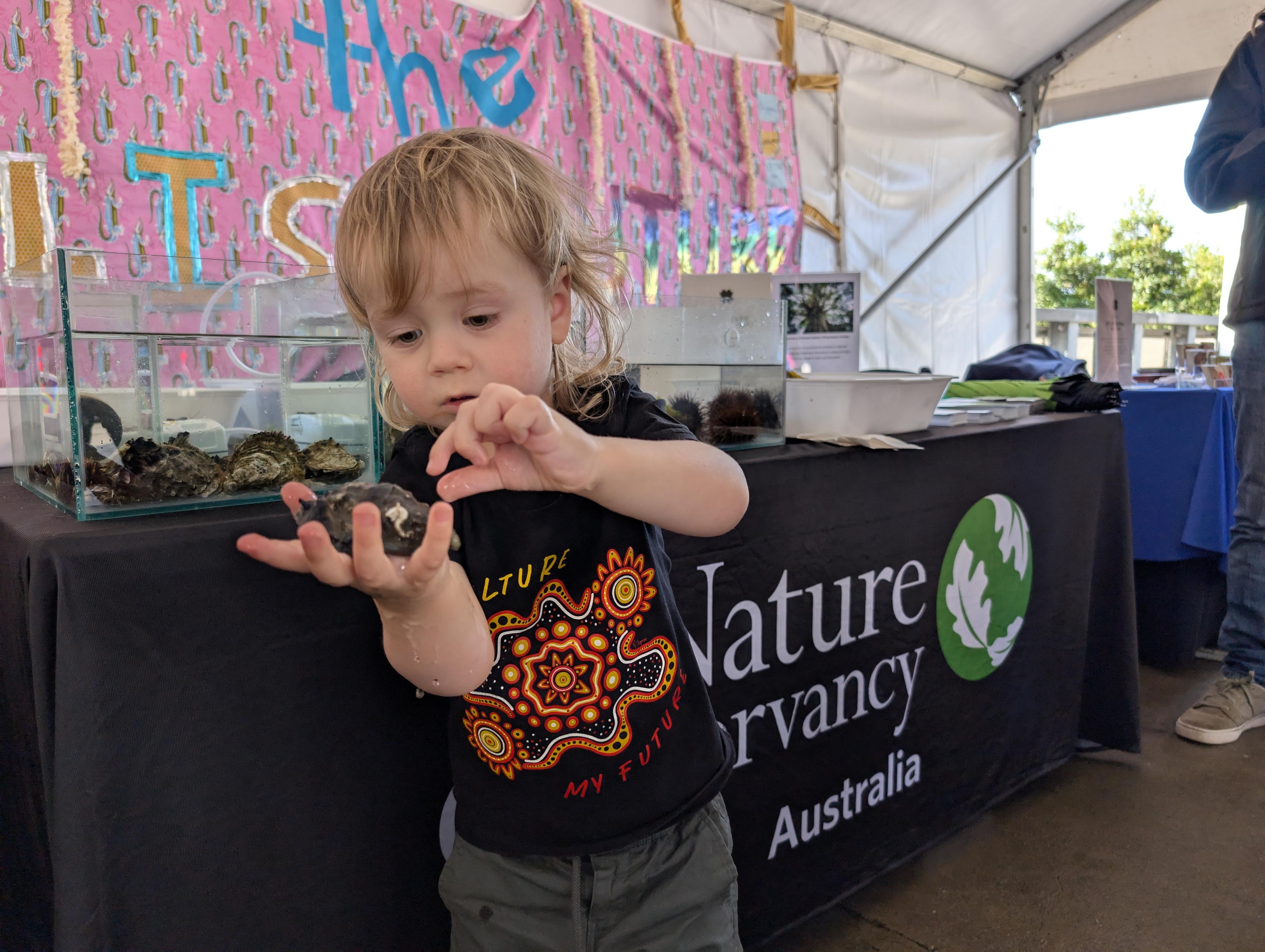
RESET Festival
Spring was in full bloom at Federation Square as The Nature Conservancy joined the RESET Festival’s Planting Party on Sunday 7 September. The RESET event is a month-long celebration of sustainability, creativity, and community action held from 1 September to 6 October. RESET invites Melburnians to slow down, reconnect with nature, and explore greener living through hands-on workshops, art installations, and family-friendly events.
Olwen Bell, Celeste Ackerly and Scott Breschkin staffed TNC’s booth, generating lively engagement with attendees of all ages. The real crowd-puller was touch tanks, featuring locally sourced live oysters, mussels, kelp and sea urchins from the reef restoration area near Ricketts Point. These interactive marine displays were a hit offering a rare chance to explore the underwater world up close. The tanks sparked conversations about the importance of healthy oceans, the role of shellfish in water filtration, and the value of marine conservation. It was great to hear that the Shuck Don’t Chuck shell recycling program was familiar to a number of attendees who stopped by.
The booth also promoted the Oceania Photo Contest, with free bookmarks encouraging budding photographers to enter the contest with images that capture and share the beauty of nature. With six categories open to all ages and skill levels, the contest celebrates the diverse landscapes and wildlife of Oceania, while raising awareness about the need to protect them.
TNC Australia's mission statement was also brought to life in full colour with our recently released short film 'Together, We Find a Way', featuring on the big screen in Fed Square throughout the month of the festival.
It was a great opportunity to connect with the environmentally conscious community and talk about The Nature Conservancy’s work in Victoria, and around Australia.
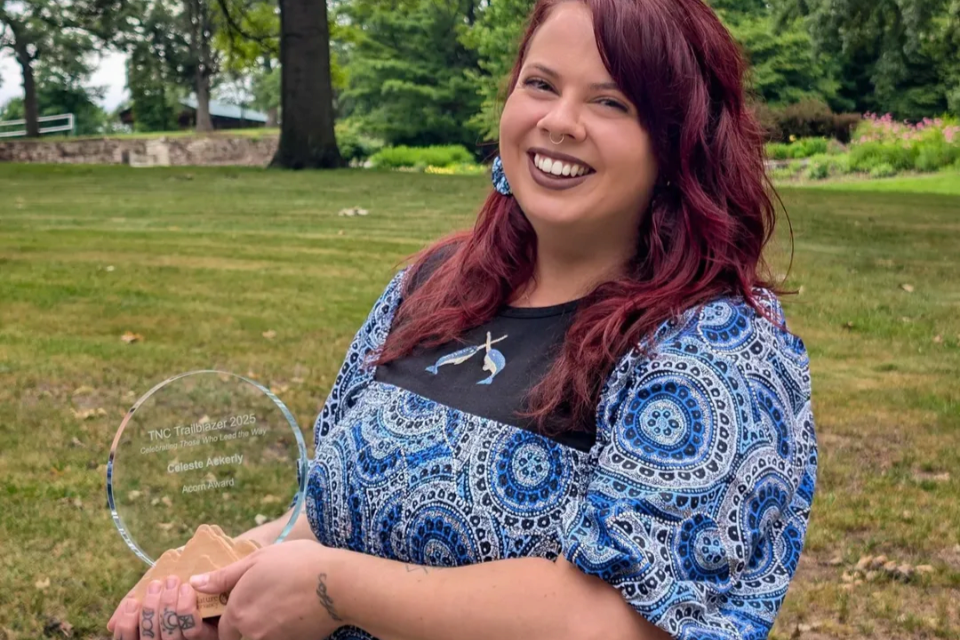
In Focus: Bush to Prairie
For Celeste Ackerly, a proud Trawlwoolway woman from north-east Tasmania, receiving an international conservation award was more than a career highlight, it marked a profoundly personal journey. Driven by her unwavering commitment to empowering Indigenous Australians in their conservation efforts, the recognition carried emotional depth and meaning that went far beyond anything she’d envisioned.
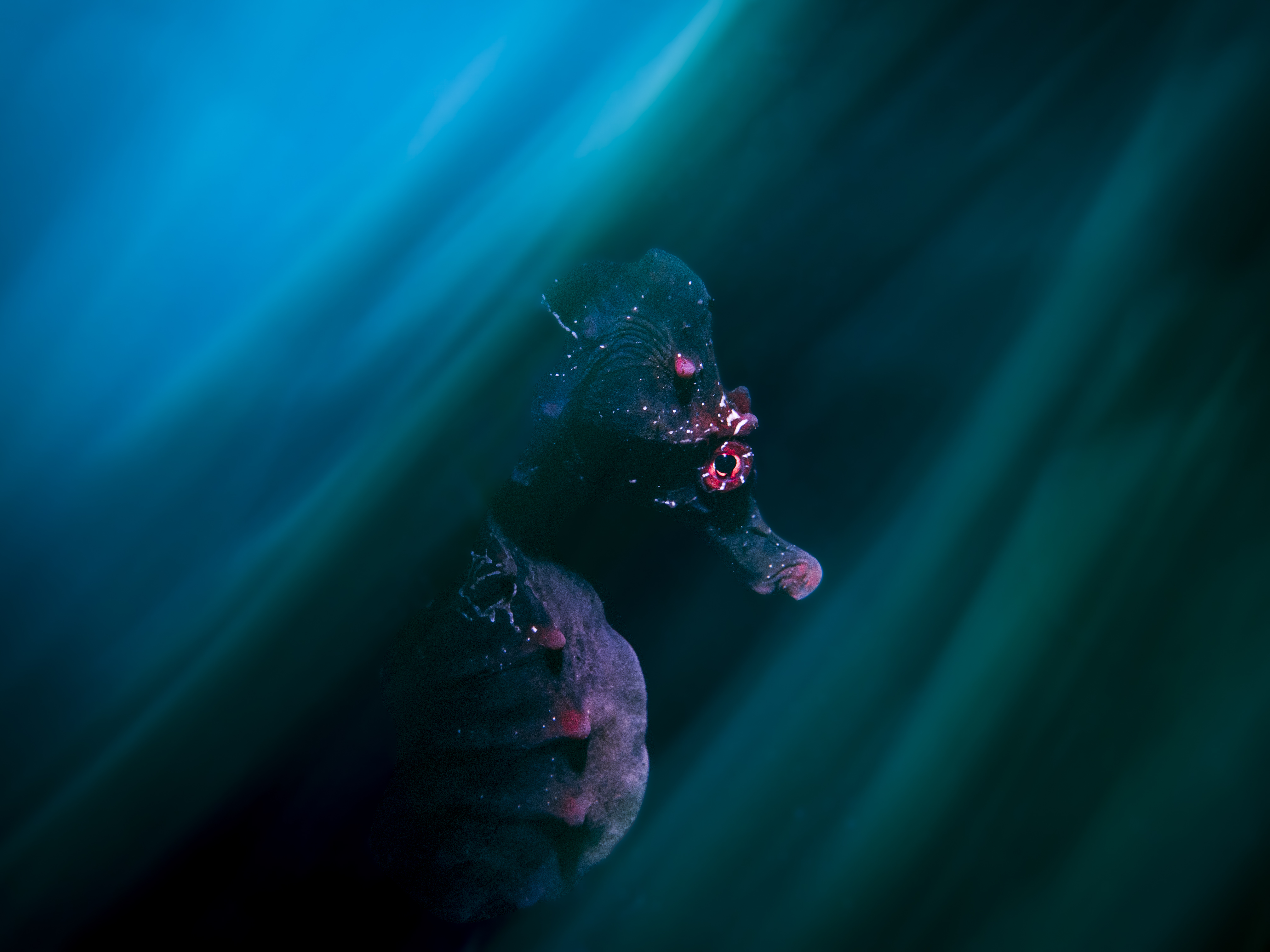
Oceania Photo Contest
We are inviting amateur and professional photographers from Australia, New Zealand, Papua New Guinea and Solomon Islands to submit images that capture the wonder of nature. You can enter across 6 categories: People & Nature, Climate, Plants & Fungi, Lands, Waters and Wildlife. There are $15,000 in prizes to be won! Competition runs from 1 September to 24 October 2025.
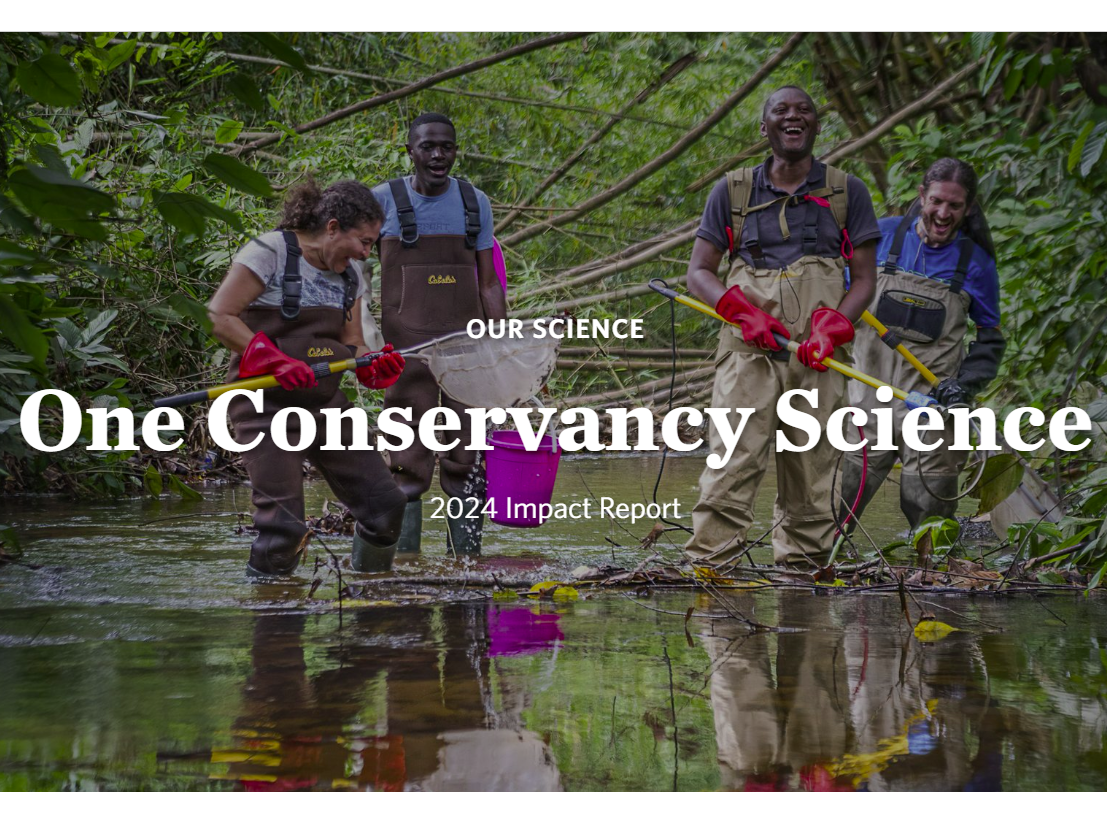
One Conservancy Science 2024 Impact Report
TNC’s One Conservancy Science Program (OCSP) is only two years old, and it’s already delivering on its mission: connecting 1,000 scientists and science staff across the globe to optimize science and innovation, amplifying research impact and building capacity to accelerate us toward our 2030 goals.
2024 was a year of many milestones. We launched a program to amplify the voices of science staff in low- and middle-income countries, piloted three Science Coda Teams and established a new Council of External Science Advisors.